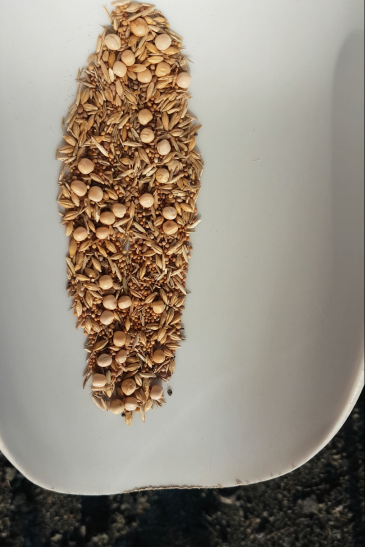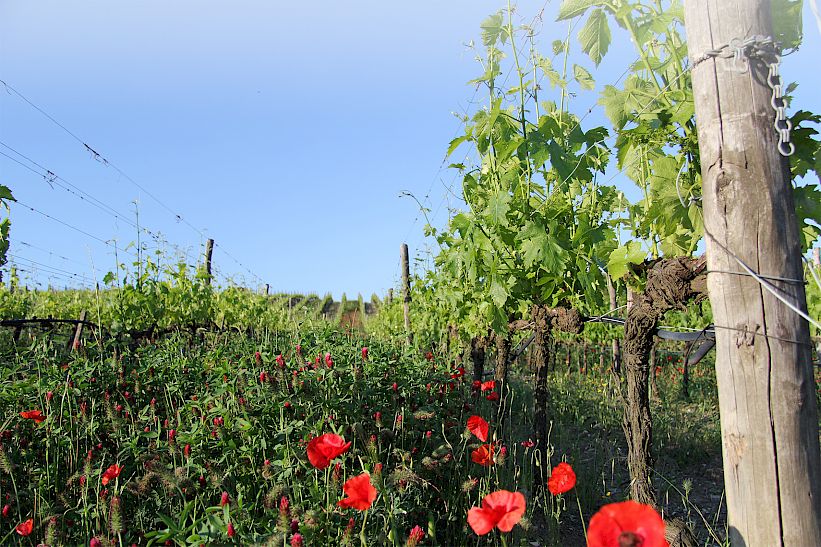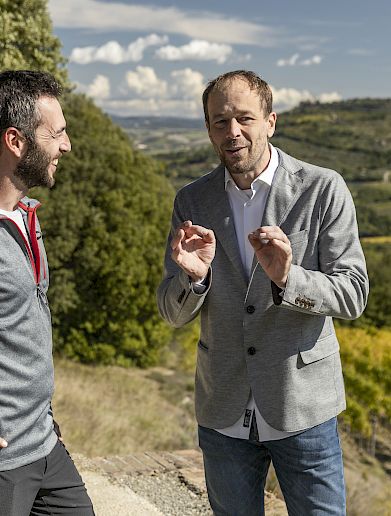Green Manure in the Vineyards
Why is green manure so important for our vineyards?
Green manure, also known as cover cropping, not only brings life to our vineyards but also to our wines. In spring, a sea of colors emerges in the vineyard and thousands of insects thrive among them. What is our motivation behind this process, and why is it so crucial for the health of our vineyards?
What is green manure?
Green manure refers to the deliberate cultivation of plants to improve soil in viticulture or agriculture. Unlike crops grown for consumption, these plants are usually not harvested, but instead mulched or plowed under.
Implementation
After the harvest, the soil is opened using a tool called a spading machine, and a mixture of seeds specially tailored to the vineyard is sown. These seeds germinate before winter and form small roots that survive the cold season. Once it becomes warmer, the seeds start to grow, and in spring, the rows between the vineyards shine in vibrant colors and are full of life. When the vine growth is at its peak, the cover crop is mulched and incorporated into the soil. This is done alternating every other row so that each year a different row receives a sowing.
Biodynamic Conclusion
As a crowning conclusion, the biodynamic horn manure preparation (500) is applied in the freshly worked vineyard, within the following day in the afternoon hours. Attention is paid to moist weather conditions to ensure the integrity of the preparation's effectiveness. For more information on that, read the blog post "Biodynamics in action".
Background
Green manure has many backgrounds and advantages. Here are the most important ones for us:
1. Soil loosening:
The growth of different plants loosens the soil and helps to avoid soil compaction caused, for example, by mechanical cultivation.
2. Fertilization:
By incorporating the cover crop into the soil, nitrogen is released from the plants, which acts as a natural fertilizer for our vines.
3. Attraction of Beneficial Organisms:
The variety of flowers and plants attracts numerous beneficial organisms, including bees for pollination, worms for soil aeration, and promoting the balance between agronomically useful and less useful insects.
4. Biodiversity:
Cultivating vineyards means creating a certain monoculture. Through green manure, we attempt to break this monoculture and contribute to biodiversity.
With green manure, we invest in the future of our vineyards and commit to sustainable and healthy management of our natural resources.













